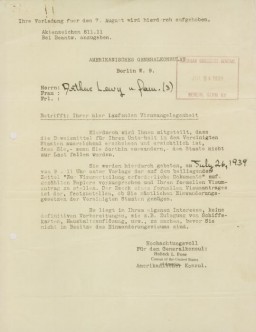You searched for: budapest
<< Previous | Displaying results 101-135 of 135 for "budapest" | Next >>
-
German Troops Occupy Hungary
Timeline EventMarch 19, 1944. On this date, Germany occupied Hungary and installed General Dome Sztojay as prime minister.
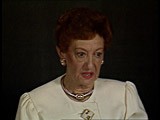
-
Wilek (William) Loew describes forced evacuation from Auschwitz
Oral HistoryWilek was the son of Jewish parents living in the southeastern Polish town of Lvov. His family owned and operated a winery that had been in family hands since 1870. Wilek's father died of a heart attack in 1929. Wilek entered secondary school in 1939. Soon after he began school, World War II began with the German invasion of Poland. Lvov was in the part of eastern Poland annexed by the Soviet Union. Although the Soviets took over Wilek's home and the family business, Wilek was able to continue his…
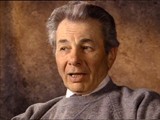
-
Cecilie Klein-Pollack
ID CardCecilie was the youngest of six children born to a religious Jewish family in the Czechoslovakian town of Yasinya. Her father, who was from Poland, taught private lessons in math and German. The family owned a small grocery store, which Cecilie's mother managed. 1933-39: Cecilie's father died in 1934 when she was 9. In March 1939 Hungary, which was sympathetic to Nazi Germany, annexed the area of Czechoslovakia where they lived. One day, Cecilie arrived home to find her mother and sister had been arrested…
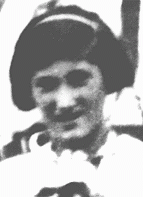
-
Francis Ofner
ID CardFrancis grew up in a city with a Jewish community of 5,000. The Ofners belonged to a synagogue that sponsored many social activities, from sports to care for the elderly. In 1931 Francis began law school at the University of Zagreb. While a student, he organized a service that posted on university bulletin boards the translations of speeches by Nazi leaders broadcast on the radio. 1933-39: By the time Hitler became chancellor of Germany, Francis was heavily involved in trying to unify the university's…
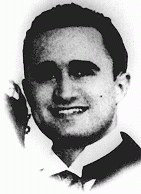
-
Alice Lok
ID CardAlice grew up in a Jewish family in Sarvar, Hungary, near the Austrian border. She had two younger brothers and an older sister. Her father worked for the family's carpet weaving and import/export business and was often away, traveling to their Budapest office. Alice's grandfather was a community leader and president of one of Sarvar's synagogues. 1933-39: Alice had a very special relationship with her grandfather. She admired him. People knew that they could always come to him for help of any kind. He…
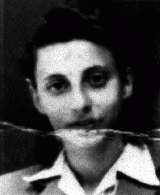
-
Ilona Karfunkel Kalman
ID CardOne of four children, Ilona was born to religious Jewish parents living in the village of Erdobenye in the highlands of northeastern Hungary. The Karfunkel's house, on the village outskirts, had a large garden in the back and fruit orchards. Ilona's parents had a small vineyard and a little grocery store. Ilona married Ferenc Kalman, and the couple moved to Hatvan, 36 miles northeast of Budapest. 1933-39: Ilona and Ferenc have always considered themselves Hungarians who happened to be Jewish, and they've…
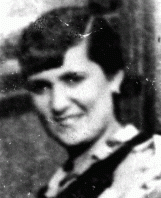
-
Andras Muhlrad
ID CardThe second of two children, Andras was born to Jewish parents living in a suburb of Budapest. His father was a pharmacist. The Muhlrads lived in a large house with Andras' grandfather and aunts. As a toddler, Andras often played with his older sister, Eva, and their cousins in the big yard behind their home. 1933-39: Andras was 4 when his family moved to their own apartment. It was 1936 when he began primary school and Hitler had already been in power in Nazi Germany for three years. At night his father…
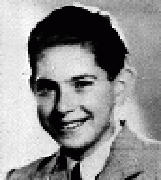
-
Jeno Muhlrad
ID CardJeno was the youngest of five children born to Jewish parents living in a suburb of Budapest. His father was a wholesale merchant who sold beer to restaurants and stores. After receiving a university diploma, Jeno became a pharmacist. He and his wife, Aranka, and their two children, Eva and Andras, shared a large old house in Ujpest with Jeno's father and other members of the extended family. 1933-39: Jeno's friends and family have helped him raise the large amount of money he needs to lease his own…
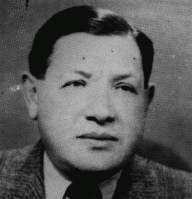
-
Judith Kalman
ID CardJudith was the only child born to a Jewish couple who lived in Hatvan, a small town 36 miles northeast of Budapest. Judith's father worked in his brother's business, marketing grains and other agricultural products purchased from local farms. When she was 3, Judith gave her first public recitation of poetry, an interest that she pursued throughout her childhood. 1933-39: Judith's family wasn't religious--they were Hungarians who happened to be Jewish, and their family was well-liked in Hatvan. But in the…
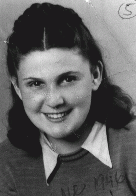
-
Wilek Loew
ID CardWilek was the son of Jewish parents living in Lvov, a large city in southeastern Poland. His family owned and operated a honeywine winery. Although they lived amongst Poles and Ukrainians, Wilek's family spoke Hebrew, German and Polish at home and were among Lvov's Jewish intelligentsia. When Wilek was 4, his father died of a heart attack. 1933-39: Jews were often discriminated against in Poland. They found it hard to gain access to schools and jobs. In 1939 Wilek managed to pass the entrance exam and…
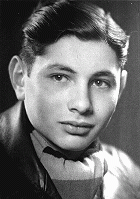
-
Barbara Nemeth Balint
ID CardBarbara was born to a middle-class Jewish family in southeast Hungary. Her father had a store that carried grocery and hardware items. Barbara had a sister named Margit and a brother named Desider. In 1928 Barbara married Istvan Geroe and moved to the town of Torokszentmiklos. Her son, Janos, was born there a year later. 1933-39: In 1933 Barbara divorced and returned with 3-year-old Janos to her parents' home in the town of Szentes. She helped run her parents' store, which was located on a busy inter-city…
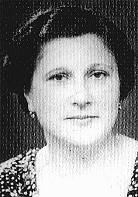
-
Janos Geroe
ID CardJanos was the only child born to a Jewish family in the small agricultural city of Torokszentmiklos, about 65 miles southeast of Budapest. His father, who had a degree in pharmacology, joined his family's grain exporting business. 1933-39: In 1933, when Janos was 4 years old, his parents divorced. According to Hungarian law, Janos was to live with his mother until he was 7 and then return to his father. Janos moved with his mother to her hometown of Szentes, where he began studying at a religious primary…
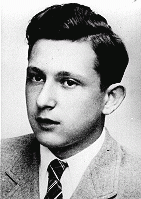
-
Ezra BenGershom
ID CardEzra was born to a Jewish family in the Bavarian city of Wurzburg. In the summer of 1929, his father, a third-generation rabbi, accepted a position as a district rabbi, guiding 12 congregations in Upper Silesia. In primary school, Ezra, who showed a keen interest in chemistry, was often harassed by his schoolmates for being Jewish. 1933-39: Because of his "Nordic" features, Ezra was able to frequent places where Jews couldn't go. In 1938, one year after he entered a Jewish secondary school in Berlin, the…
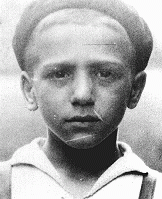
-
Miksa Deutsch
ID CardMiksa was the youngest of four children born to religious Jewish parents. The Deutches lived in the town of Bistrita in Transylvania, a region of Romania that belonged to Hungary until 1918. After 1910, the family lived in nearby Viseu de Sus. In 1922 Miksa moved to Budapest, Hungary, where he and his older brother, Pal, opened a business selling matches. In 1928 Miksa married Kornelia Mahrer. 1933-39: Miksa and Kornelia had three children, whom they raised with a religious education. Miksa and his…
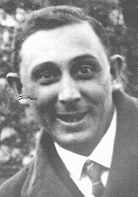
-
Francis Akos describes experiences in the immediate aftermath of the Holocaust
Oral HistoryAfter the Germans occupied Hungary in March 1944, Francis was deported to Neuengamme, a concentration camp located on the outskirts of Hamburg, Germany. Later, as Allied forces advanced, Francis and other prisoners were transported from Neuengamme. They were placed on a cargo ship which sailed into Luebeck Bay, where the prisoners were crowded onto the "Cap Arcona." The "Cap Arcona" and other ships were bombed in early May 1945. Francis was rescued and came ashore in the German town of Neustadt, where…
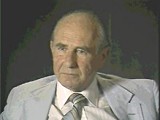
-
Agnes Allison describes the Hitler Youth movement at her school
Oral HistoryAgnes Allison (née Agnes Suzannah Halàsz) was born on October 28, 1926, in Budapest, Hungary, to Ilona Gero and Robert Halász. She had a younger sister, Judy. Agnes attended a private German school established for the children of diplomats. There was a Hitler Youth movement at the school. Agnes and her family were forced out of their home following the German occupation of Hungary. She went into hiding in December 1944. Beginning in 1933, the Hitler Youth and the League of German Girls had an…
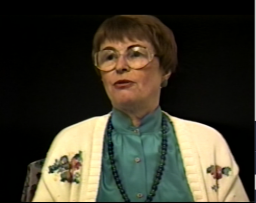
-
Refuge in Latin America
ArticleBetween 1933-1945, Latin American governments officially permitted approx. 84,000 Jewish refugees. Learn more about Latin America refugee policy.
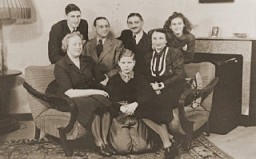
-
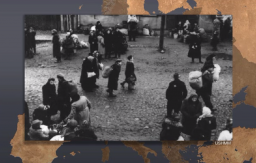
-
Holocaust Denial: Key Dates
ArticleBrowse a timeline listing some key events in the evolution of Holocaust denial and the distortion of the facts of the Holocaust.
-
Wilek (William) Loew describes the hiding place in which his mother survived an Aktion in Lvov
Oral HistoryWilek was the son of Jewish parents living in the southeastern Polish town of Lvov. His family owned and operated a winery that had been in family hands since 1870. Wilek's father died of a heart attack in 1929. Wilek entered secondary school in 1939. Soon after he began school, World War II began with the German invasion of Poland. Lvov was in the part of eastern Poland annexed by the Soviet Union. Although the Soviets took over Wilek's home and the family business, Wilek was able to continue his…
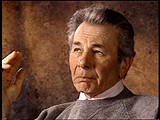
-
Emanuel (Manny) Mandel describes the "Kasztner train" journey to Bergen-Belsen
Oral HistoryEmanuel's father was a cantor who became, soon after Emanuel was born, one of the chief cantors in Budapest. Germany occupied Hungary in March 1944. Systematic deportations of Jews from Hungary to the Auschwitz camp in occupied Poland began in May 1944. Emanuel and his mother were part of the train, organized by Zionist activist Rezso Kasztner, of over 1,600 Hungarian Jews who were to be sent to neutral countries as part of an exchange program. The train arrived at the Bergen-Belsen camp, where the…
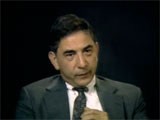
-
Wilek (William) Loew describes Jewish life in prewar Lvov, including restrictions on admission to schools
Oral HistoryWilek was the son of Jewish parents living in the southeastern Polish town of Lvov. His family owned and operated a winery that had been in family hands since 1870. Wilek's father died of a heart attack in 1929. Wilek entered secondary school in 1939. Soon after he began school, World War II began with the German invasion of Poland. Lvov was in the part of eastern Poland annexed by the Soviet Union. Although the Soviets took over Wilek's home and the family business, Wilek was able to continue his…
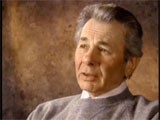
-
The Order Police
ArticleThe Order Police (Ordnungspolizei, Orpo) were Nazi Germany’s uniformed police forces. They became perpetrators of horrific crimes and played a significant role in the Holocaust.
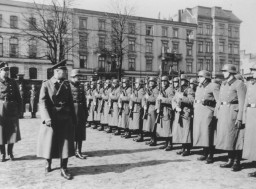
-
The Krakow (Cracow) Ghetto during the Holocaust
ArticleThe Krakow ghetto in German-occupied Poland held over 15,000 Jews. Learn more about Krakow and the ghetto’s history during the Holocaust and WWII.
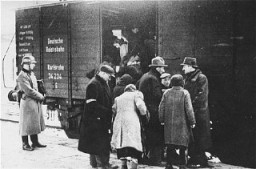
-
Wilek (William) Loew describes the roundup of Jews during August 1942 deportation from Lvov to Belzec
Oral HistoryWilek was the son of Jewish parents living in the southeastern Polish town of Lvov. His family owned and operated a winery that had been in family hands since 1870. Wilek's father died of a heart attack in 1929. Wilek entered secondary school in 1939. Soon after he began school, World War II began with the German invasion of Poland. Lvov was in the part of eastern Poland annexed by the Soviet Union. Although the Soviets took over Wilek's home and the family business, Wilek was able to continue his…
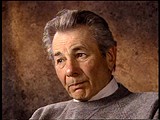
-
Wilek (William) Loew describes forced labor in Lvov
Oral HistoryWilek was the son of Jewish parents living in the southeastern Polish town of Lvov. His family owned and operated a winery that had been in family hands since 1870. Wilek's father died of a heart attack in 1929. Wilek entered secondary school in 1939. Soon after he began school, World War II began with the German invasion of Poland. Lvov was in the part of eastern Poland annexed by the Soviet Union. Although the Soviets took over Wilek's home and the family business, Wilek was able to continue his…
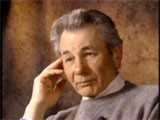
-
Wilek (William) Loew describes refugees from western Poland after their arrival in Soviet-occupied Lvov
Oral HistoryWilek was the son of Jewish parents living in the southeastern Polish town of Lvov. His family owned and operated a winery that had been in family hands since 1870. Wilek's father died of a heart attack in 1929. Wilek entered secondary school in 1939. Soon after he began school, World War II began with the German invasion of Poland. Lvov was in the part of eastern Poland annexed by the Soviet Union. Although the Soviets took over Wilek's home and the family business, Wilek was able to continue his…
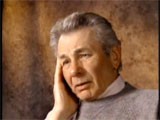
-
Wilek (William) Loew describes the Soviet occupation of Lvov in 1939
Oral HistoryWilek was the son of Jewish parents living in the southeastern Polish town of Lvov. His family owned and operated a winery that had been in family hands since 1870. Wilek's father died of a heart attack in 1929. Wilek entered secondary school in 1939. Soon after he began school, World War II began with the German invasion of Poland. Lvov was in the part of eastern Poland annexed by the Soviet Union. Although the Soviets took over Wilek's home and the family business, Wilek was able to continue his…
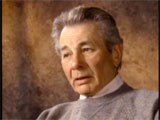
-
World War II: In Depth
ArticleGermany started World War II in Europe on September 1, 1939, by invading Poland. War would continue until 1945. Learn more about key events in the history of WWII.
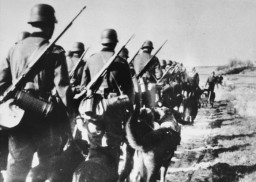
-
The United States and the Holocaust, 1942–45
ArticleWhy did the United States go to war? What did Americans know about the “Final Solution”? How did Americans respond to news about the Holocaust? Learn more.
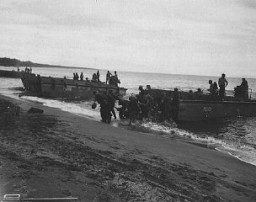
-
World War II Dates and Timeline
ArticleWorld War II was the largest and most destructive conflict in history. Learn about key WWII dates in this timeline of events, including when WW2 started and ended.
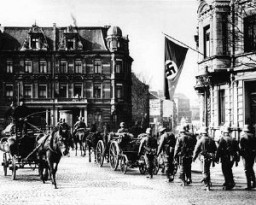
-
Franklin Delano Roosevelt
ArticleFranklin D. Roosevelt was 32nd president of the US. Learn about the domestic and international challenges FDR faced as president during World War II.
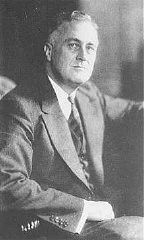
-
Life After the Holocaust: Aron and Lisa Derman
ArticleAfter WWII and the fall of the Nazi regime, Holocaust survivors faced the daunting task of rebuilding their lives. Listen to Aron and Lisa Derman's story.
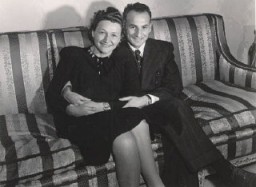
-
How did leaders, diplomats, and citizens around the world respond to the events of the Holocaust?
Discussion QuestionExplore this question to learn about the responses of leaders and citizens
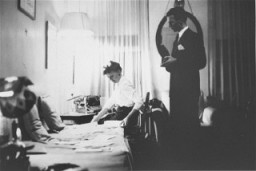
-
How did the United States government and American people respond to Nazism?
Discussion QuestionConsideration of American responses to Nazism during the 1930s and 1940s raises questions about the responsibility to intervene in response to persecution or genocide in another country.
